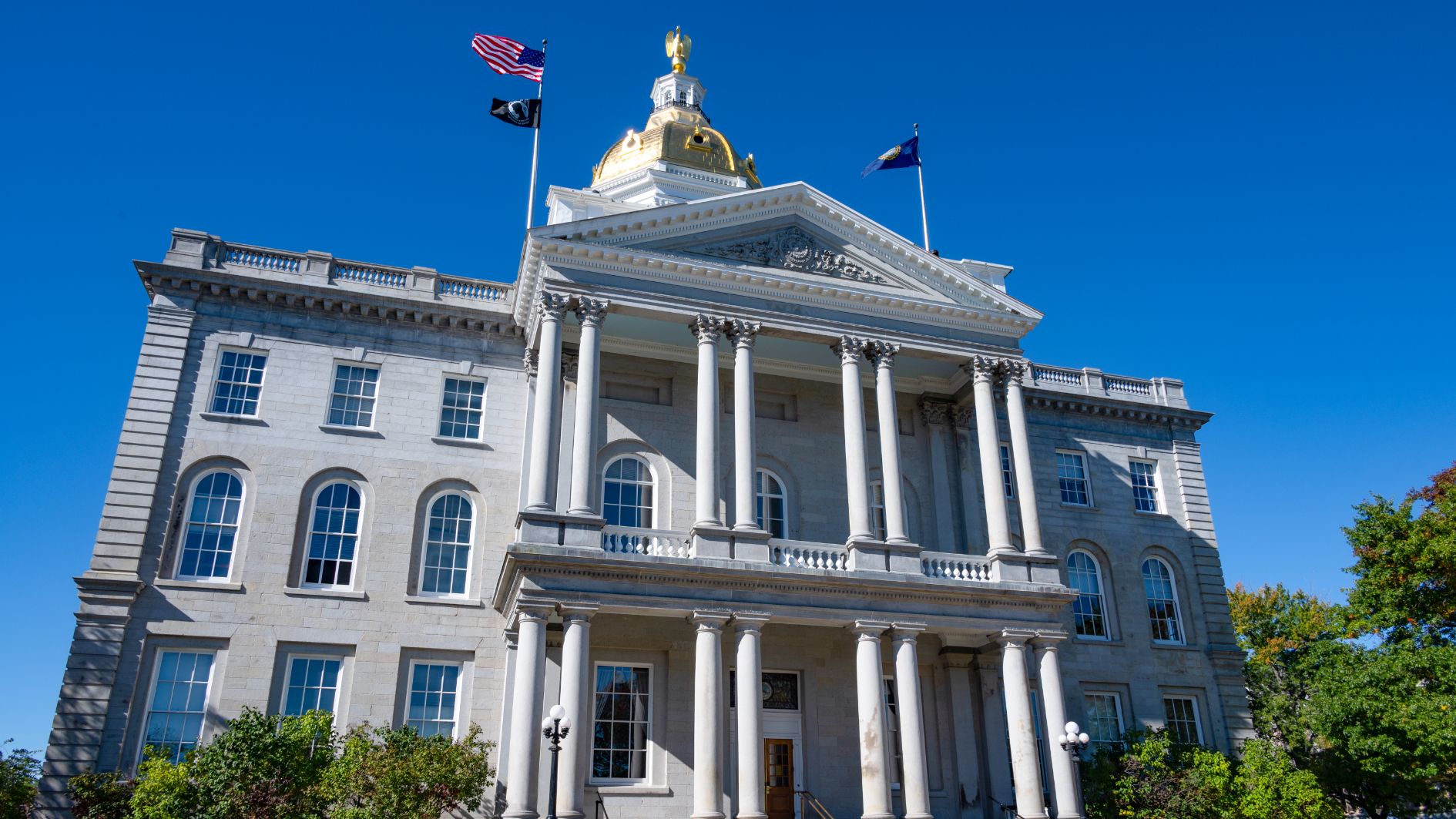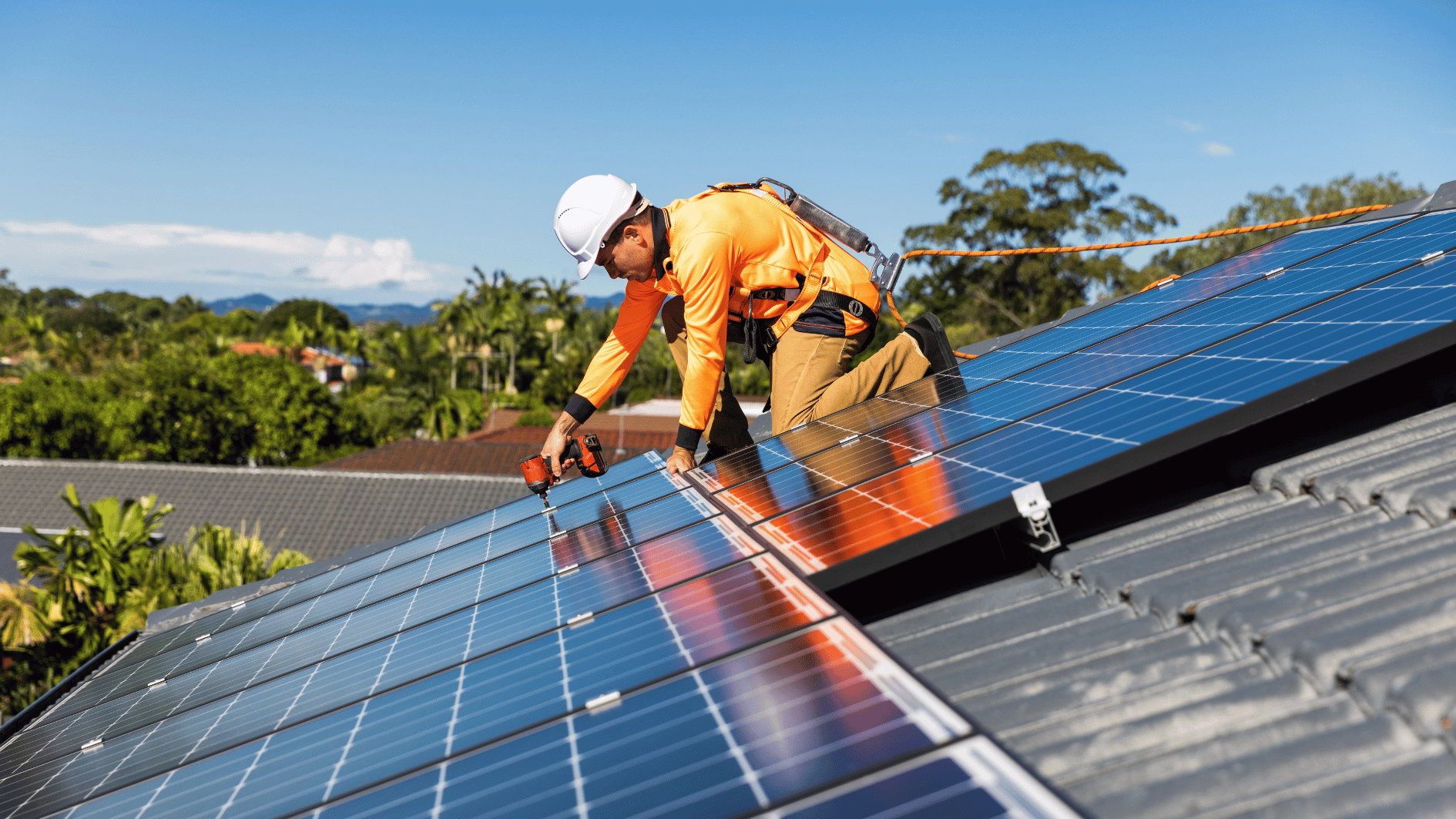Image source: Canva.com
Solar power is the fastest growing source of renewable energy in the United States. The cost to install solar has declined by more than 40% over the last decade, leading the industry to expand into new markets and deploy thousands of new and efficient systems nationwide. An impressive 53% of all new electric capacity added to the U.S. energy grid in 2023 came from solar, and the aggregate U.S. solar portfolio is expected to quadruple over the next decade to at least 673 gigawatts—enough to power nearly 132 million homes.
While the majority of New Hampshire residents support renewable energy development, the Granite State trails behind its neighbors in the solar generation movement: New Hampshire ranks 41st in the country for total installed solar capacity at 263 megawatts, compared to Massachusetts (5,070 megawatts), Maine (983 megawatts), and Vermont (429 megawatts).
But the proverbial future is bright, as recent developments have created more opportunity for solar power in the state.
Repurposing Contaminated Land
New Hampshire farms devastated by per- and polyfluoroalkyl substances (PFAS) contamination are finding hope in Maine’s LD 1591, An Act to Promote Economic Reuse of Contaminated Land Through Clean Energy Development. This act established a competitive procurement for solar development where the discovery of PFAS has prevented continued agricultural activity. It has also given New Hampshire lawmakers and regulators a blueprint for managing PFAS contamination in New Hampshire soils, identified in recent testing.
The End of Coal Power
In March, Granite Shore Power announced that it would be permanently discontinuing coal-fired operations at Schiller Station in Portsmouth and Merrimack Station in Bow, the only remaining coal plants in New England. Granite Shore Power intends to convert both facilities into “renewable energy parks.”
“Solar for All” Grant
In April, the U.S. Environmental Protection Agency (EPA) announced that New Hampshire had been selected to receive over $43 million from the “Solar for All” competitive grant program to fund access to the environmental and financial benefits of solar energy in low-income households and communities. The New Hampshire Department of Energy (NHDOE), The New Hampshire Community Loan Fund, and New Hampshire Housing Finance Authority have jointly designed a comprehensive and complementary approach to bring the benefits of residential-serving community solar to those least able to afford this new technology.
A NH Supreme Court Win
In early 2024, the New Hampshire Supreme Court issued a unanimous decision in Mojalaki Holdings, LLC v. City of Franklin that is motivating municipalities to begin developing solar zoning ordinances in anticipation of new solar development opportunities across the Granite State. In the decision, the New Hampshire Supreme Court ruled that—in the absence of specific ordinance language addressing solar panel arrays—Mojalaki Holdings, LLC’s plans to develop a solar array project on a former golf course could move forward since it met all of the necessary requirements for new developments in the City of Franklin (City). The City attempted to argue that the development of a solar array went against the stated purpose of the City’s Site Plan Review Regulations, but the Court denied this argument, as it would open the door to subjective reviews of similar projects in the future. This case will motivate the City and other New Hampshire municipalities to draft ordinances addressing solar arrays specifically, so that they can be objectively assessed and approved in the future.
In Conclusion: Now is the Time to Develop Solar in New Hampshire
Despite a slow start, New Hampshire has seen strong momentum in the renewable energy space over the last several months and is well-positioned to become a leader in the solar generation movement in the coming decade.
Source: BERNSTEINSHUR





